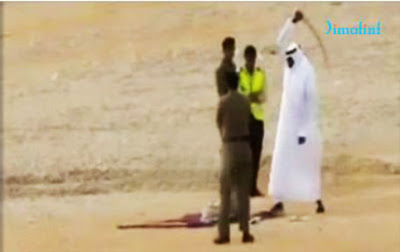Hadi Bin Kadamah had spent 28 years in prison for killing his cousin in 1992
Saudi Arabia’s longest-serving prisoner Hadi Bin Kadamah was executed yesterday (Tuesday, June 23), Erm News quoted an official source as saying.
Having spent 28 years in jail, Bin Kadamah was finally executed after being convicted of murdering his cousin in the Dhahran Governorate in Asir region in 1992.
There were several unsuccessful attempts over the years where he had asked for forgiveness from the family of the murdered man.
Hours before his execution, he was still hoping for forgiveness - his last words were addressed to the victim’s family asking them to pardon him so that he would be released.
In February, the death penalty was postponed due to attempts by mediators, including Saudi King Salman Bin Abdul Aziz, Crown Prince Mohammed Bin Salman and tribal heads who meddled with the victim’s family for his release.
In a letter, Bin Kadamah recounted the details about the crime. He wrote: “I introduce myself to you; I am your brother, prisoner Hadi Bin Saud Bin Kadamah Al Sharif Al Hababi. I appeal to you to stand with me in my misfortune and help me to get pardoned and released.”
Bin Kadamah recalled the details of the dispute that occurred between him and his cousin, Sultan.
“The dispute between us turned into an exchange of several stabs. When my cousin fell on the ground, he was still alive. I took him to the nearest medical facility in Dhahran where he succumbed to his wounds.”
In the letter, Bin Kadamah appealed to King Salman and Crown Prince, as well as to the Emir of Asir region, all high-profile figures and heads of tribes to help him get released.
Despite all these attempts, the family of the dead man refused to pardon him and insisted on the execution of the death penalty.
“Qahtan tribes” account on Twitter revealed earlier that Emir of Asir region, Prince Turki Bin Talal, went to the victim’s family shortly before the execution, to accept blood money and forgive the killer.
It was also reported that a number of southern tribal heads visited the family hours before the execution, but all attempts were unsuccessful.
Also, activists called for his release but to no avail.
Source: Gulf News, Staff, June 24, 2020
⚑ | Report an error, an omission, a typo; suggest a story or a new angle to an existing story; submit a piece, a comment; recommend a resource; contact the webmaster, contact us:
deathpenaltynews@gmail.com.
Opposed to Capital Punishment? Help us keep this blog up and running! DONATE!
"One is absolutely sickened, not by the crimes that the wicked have committed,
but by the punishments that the good have inflicted." -- Oscar Wilde













